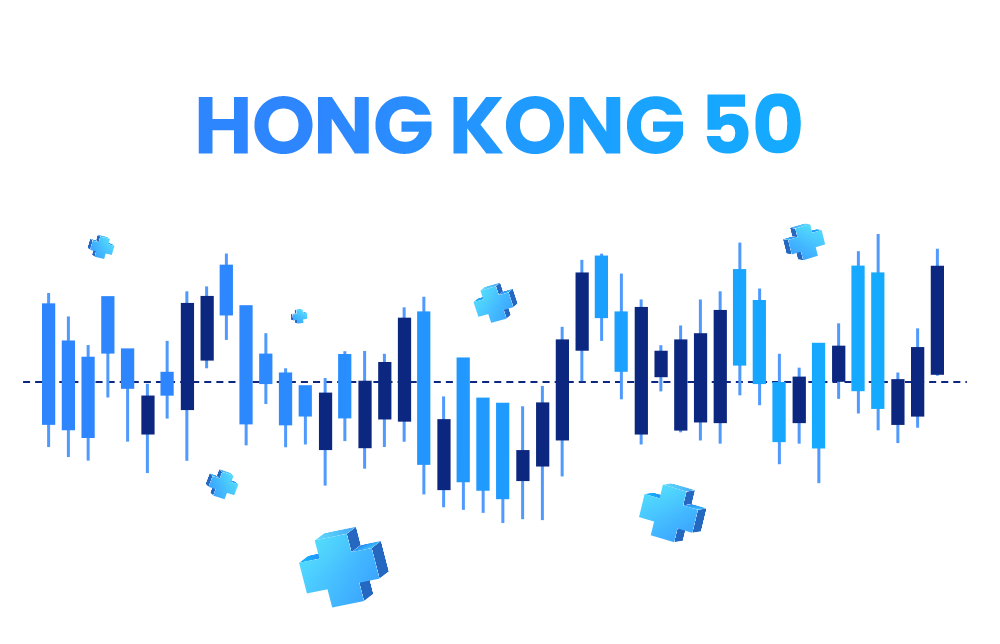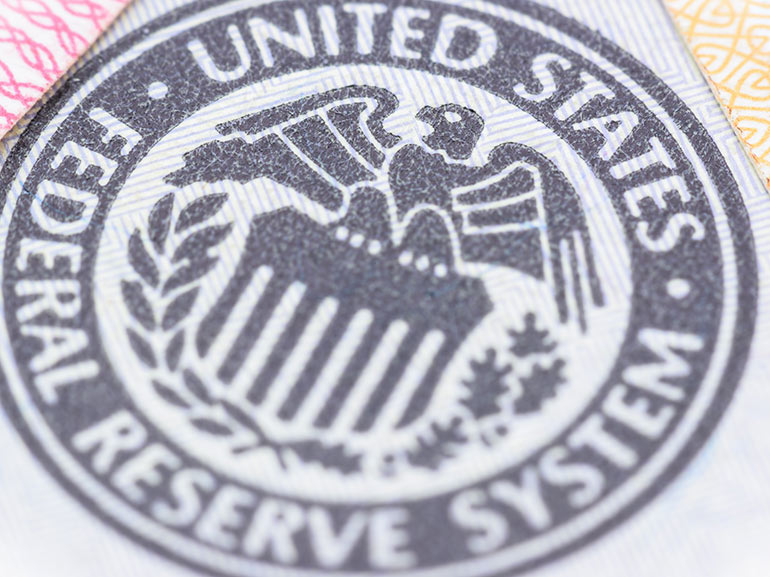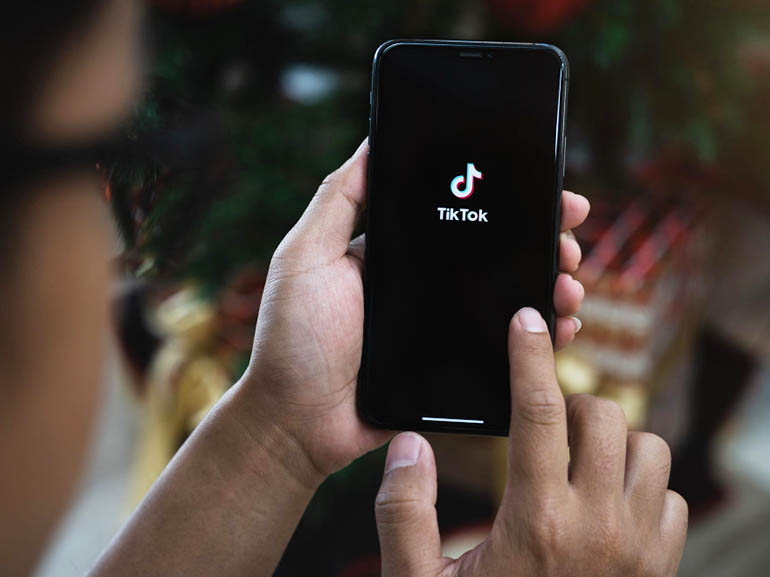How To Trade the Hang Seng Index: HK50 Trading Guide
Date Modified: 08/04/2024
Inspired by successful indices like the Dow Jones Industrial Average, the Hang Seng Index was created and it grew to become a leading stock market benchmark in Asia.

Main Points:
- Hang Seng Index is a price-weighted index of 82 large-cap companies listed on the Hong Kong Stock Exchange.
- The Hang Seng was designed as Hong Kong’s version of the Dow Jones Industrial Average to measure Hong Kong's stock market performance and economy.
- The Hang Seng index financial products like HK50 CFD, provide exposure for traders to speculate on the price movement of the index using leverage.
- The index usually experiences the most volatility during the HKSE morning session, the US market opening, and periods of economic announcements from Hong Kong and China.
- Having a solid trading plan is essential to trading the HS50 index financial products.
What Is the Hang Seng Index?
Hang Seng Index (HSI) is a stock market index used to record and monitor the daily changes in the most sizable and actively traded shares listed on the Hong Kong Stock Exchange (HKSE), the fifth largest stock market in the world (as of January 2024).
Commonly referred to as Hang Seng 50 index (HS50), HSI50, or HK50, the Hang Seng Index was designed to be Hong Kong’s version of the DJIA but just like the S&P 500 and FTSE 100, the Hang Seng Index is based on a free-float market capitalization system where stocks with higher market caps have greater influence on the value of the index.
As of February 2024, the Hang Seng Index comprises 82 companies. Together, these companies make up about 58% of the total value of the Hong Kong Stock Exchange.
What Is the Importance of the Hang Seng Index?
- The Hang Seng index is the main benchmark used to analyze the state of the Hong stock market and its economy, the world's fourth-largest financial centre (as of February 2024).
- It is widely used as a sentiment indicator for the overall performance of the Asian stock market.
- It ranks among the most actively traded stock market indices in the Asia-Pacific region.
- The Hang Seng index is notable for its significant price swings and volatility, catering to both short-term and long-term trading.
Composition and Classification of the Hang Seng Index
The HSI comprises the most prominent and actively traded stocks on the Hong Kong Stock Exchange. Starting with 33 companies in 1969, the HSI has broadened to include 82 companies.
As of February 2024, the top 10 companies by market capitalization that comprise the Hang Seng index are:
| No. | Name | Symbol | Market Cap (B) | Sector |
|---|---|---|---|---|
1 |
00700.HK |
2,641.00 |
Commerce & Industry |
|
2 |
09988.HK |
1,517.35 |
Commerce & Industry |
|
3 |
00941.HK |
1,422.61 |
Utilities |
|
4 |
00005.HK |
1,172.47 |
Finance |
|
5 |
China Construction Bank Corporation |
00939.HK |
1,108.32 |
Finance |
6 |
CNOOC Ltd. |
00883.HK |
684.01 |
Utilities |
7 |
AIA Group Ltd. |
01299.HK |
678.87 |
Finance |
8 |
NetEase, Inc. |
09999.HK |
534.30 |
Commerce & Industry |
9 |
03690.HK |
394.99 |
Commerce & Industry |
|
10 |
01398.HK |
328.95 |
Finance |
How Do You Trade The Hang Seng Index?
There are several instruments linked to the Hang Seng index, offering volatility and ample price swings for traders looking to speculate on the price movement of the index. To gain exposure on the Hang Seng Index live, traders can do the following:
- Trade the Hang Seng Index Futures
- Trade the Hong Kong 50 (HK50)
- Trade the Hang Seng-related ETFs
- Trade the Hang Seng 50 Options
- Trade the Hang Seng 50 Listed Shares
- How to Trade Hang Seng Index Futures
Hang Seng 50 Futures contracts, or simply “HSI futures” are a type of derivative contract agreement to buy or sell the HSI at a set future date for a predetermined price.
The futures contract associated with the HSI is simply the Hang Seng Index Futures. It can be used for a variety of purposes including speculating on the future price of HS50 or hedging stock positions against losses.
- How to Trade Hong Kong 50 (HK50)
Hong Kong 50 is the ticker symbol representing the CFD derivative of the HSI futures.
When you trade Hong Kong 50 (HK50), you are trading Contracts for Differences based on the Hang Seng index futures price.
Trading Hong Kong 50 through our CFD trading platform is the most direct way to trade the HSI which involves opening a buy or sell position to make a profit or loss from the difference between your entry and exit price.
- How to Trade Hang Seng Index ETFs
An alternative way to gain exposure to the HSI without owning any of its constituent stocks is to consider trading a Hang Seng-linked Exchange Traded Fund (ETF) CFD via a CFD trading account. This allows you to speculate on the price movement of the HSI ETF, using leverage to amplify your potential profits (or losses).
However, keep in mind: that trading ETF CFDs may offer lower liquidity and wider spreads. This often makes ETF CFDs a preferred choice for long-term traders.
- How to Trade Hang Seng Index Options
Options traded on the Hang Seng Index are commonly referred to as "Hang Seng Index Options" or "HSI Options. With options, traders have the right but not the obligation, to buy or sell the HSI at a strike price on or before its expiry date.
Via a CFD trading account, you may buy HS50 call or put option CFDs by putting down a small deposit to control a larger position (using leverage). Although capable of amplifying potential gains, it can equally magnify your losses.
- How to Trade Hang Seng Index Listed Shares
If you do not want to have exposure to the HSI, you can trade the specific stocks featured within it. This approach involves trading share CFDs with leverage, giving you the flexibility to open long or short positions on specific stocks like Tencent, Alibaba, or Xiaomi, all of which are part of the HSI.
Pros and Cons of Trading Hang Seng 50 Index CFDs
It is crucial to understand both sides of the coin: the potential advantages and the inherent risks of trading the various Hang Seng 50 CFD financial instruments.
-
The Benefit of Trading HS50 CFDs
- Flexibility: HS50 CFDs are suitable for various trading strategies including day trading, swing trading, and position trading.
- Volatility: HS50 CFDs provide exposure to ample price swings and opportunities to capture short-term and long-term opportunities.
- Liquidity: when compared to other indexes, the HSI's high trading volume makes it quick and easy to enter and exit trade positions.
- Global Access: HS50 CFDs provide exposure to traders from anywhere in the world to benefit from the emerging Hong Kong and China economies.
-
The Drawback of Trading HS50 CFDs
- No shareholder rights: Unlike owning stocks directly, HS50 CFD trading does not come with the benefits of dividends or voting rights.
- Geopolitical risks: China as an emerging economy is exposed to trade wars and political tensions which can impact the price movement of HSI and your CFD positions.
- Poor weather: In the occurrence of severe weather in Hong Kong, like typhoons or heavy rain. Safety and operational issues may lead to delays in trading sessions or cancellations for the whole day.
Steps to Start Trading Hang Seng Index
- Sign up for a trading Account.
- Access our interactive CFD trading platform.
-
Find the specific HS50 financial instrument you wish to trade. Search from:
- The instrument category section
- The search bar at the top left of the trading platform
- Analyze the HS50 market to decide if you want to open a long (buy) or short (sell) trade.
- Adjust your number of contracts.
- Set your risk management parameters: Take profit, stop loss, trailing stop, or limit orders.
- Click the "Buy" or "Sell" button to open a trade in the HSI market.
Why Trade the Hang Seng 50 Index CFD with Plus500
- Risk-Free Demo Account: Plus500 provides a free and unlimited demo account so you can begin your HS50 trading journey.
- Cutting Edge trading platform: Plus500 intuitive trading platform ensures you can trade HS50 CFDs comfortably on desktop, iOS, and Android devices, anywhere and anytime.
- Advanced trading tools: Access to Plus500 advanced charts, technical indicators, and economic calendars helps to make informed trading decisions on HS50 markets.
- Swift Order Execution: When you trade HS50 CFDs, Plus500 ensures fast and reliable order execution at your precise entry and exit prices.
- Competitively priced: Plus500 offers tight spreads when trading the HS50 market. Other fees might also apply.
- Leverage: Plus500 provides leverage to amplify your potential returns but this can also amplify losses.
- Access your funds: With Plus500, you can access your funds anytime and enjoy a secure withdrawal process.
- Safety of funds: Your funds are kept in segregated bank accounts, in accordance with regulatory requirements.
Hang Seng 50 Market Trading Hours
You can trade a range of HS50 CFDs and monitor the live price changes on the Plus500 trading platform. Generally, we offer trading — 5 days a week, from Monday to Friday, between 23:00 to 00:00 CET, with a daily break at 22:15 to 22:30 CET time. However, trading platforms’ hours and choice of instrument are subject to each operator.
Hours to Trade the Hang Seng Index
The HSI-related instruments are mostly traded during the market hours of the Hong Kong Stock Exchange with three distinct sessions each day from Monday to Friday:
| Session | HKT Time | CET Time | |
|---|---|---|---|
1 |
HKSE Morning Session |
9:15 a.m. - 12:00 noon |
2:15 a.m. - 5:00 a.m. |
2 |
HKSE Afternoon Session |
1:00 p.m. - 4:00 p.m. |
6:00 a.m. - 9:00 a.m. |
3 |
HKSE AHT Session |
5:15 p.m. - 3:00 a.m. |
10:15 a.m. - 8:00 p.m. |
Traders often seek to capitalize on the price movement of the HS50 CFDs during periods of likely heightened market volatility, such as:
- The HKSE Morning Session (9:15 a.m. - 12:00 noon HKT). This is usually the period of heightened market activity by early morning market participants in the Asian region.
- The US Market Open (7:00 a.m. - 11:00 a.m.), which is 8:00 p.m. - midnight in Hong Kong. This may not be surprising, given that a lot of US investors are interested in Asian markets.
- Periods of major economic announcements in Hong Kong and China.
What Are the Factors Influencing the Hang Seng 50 Price?
- US-China Relations: Rising tensions between the US and China, the world's two biggest economies, can lead to capital outflow and exert downward pressure on the Hang Seng Index while stable relations may serve as a positive indicator.
- Company Earnings: HS50 is market-cap weighted, hence any significant change in the valuation of its largest constituents due to earnings can significantly impact the index price movements.
- Interest Rates' Effect: It's common for stock markets to go up when interest rates decrease. Conversely, when interest rates increase, stock markets often go down. This pattern can apply to the HS50 index as well, but it's not always the case.
- Currency Fluctuations: Changes in exchange rates of major Asian currencies like HKD, CHF, and JPY can affect the performance of the HSI.
- Economic Indicators: Data reports from Asian economies like GDP, industrial production, retail sales, and inflation are important indicators that affect the HS50 index price movement.
Develop a Hang Seng 50 Index Trading Plan
Here's a 5-step approach that can help develop a Hang Seng 50 trading plan with clear and concise entries and exits.
- Choose a HS50 trading strategy that aligns with your trading objectives. It could be day trading, position trading, or swing trading.
- Master HS50 technical Analysis using Plus500 advanced charting tools and indicators. For example:
- Bollinger Bands and Simple Moving Averages may help to identify the HS50 trends.
- Stochastic indicators may help generate overbought and oversold signals.
- Stay abreast of economic events that might influence the HS50 price movement via our economic calendar.
- Utilize our trading alert features to get automatic trading alerts via email, SMS, or push notifications on relevant news or when the HS50 reaches specific price points.
- Lastly, implement a robust risk management plan to help control your risk exposure and limit potential losses.
Find Out More About the Hang Seng 50 Index
Hang Seng Index Classification System and Admission Criteria
To more accurately measure the price performance of major sectors of the Hong Kong market, HSI securities were categorized into 4 sectors namely: Finance, Utilities, Properties, and Commerce & Industry.
This system of classification is based on the following guidelines:
- Sales revenue including profits and assets.
- The major source of sales revenue.
- Re-classification is based on changes such as mergers or acquisitions.
Additionally, they must be among the segments on the Hong Kong Stock Exchange (HKSE) that account for:
- The top 90% of the total worth of all regular shares
- The top 90% of the total trading volume (turnover)
- At least a minimum of 2 years on the HKSE.
How Often Do Hang Seng Index Companies Change?
The Hang Seng Indexes Company Limited (HSIL) is responsible for making decisions on whether to add or remove constituents from the index. The company reevaluates the HSI constituents quarterly, specifically at the end of every contract delivery month — March, June, September, and December.
How Is the Hang Seng Index Calculated?
The Hang Seng Index monitors the total changes in the share prices of its constituent companies and derives the index price by analyzing the collective market cap of each company every 2 seconds in real-time. The index gives more weight to companies with a larger market size. This means larger companies have a bigger influence on the price of the index, and smaller companies have less influence.
Frequently Asked Questions
What Currency Is the Hang Seng Index Denominated in?
The HSI index is quoted and traded in Hong Kong Dollars (HKD). This means all its values and related financial instruments are priced in HKD.
Can I buy the Hang Seng Index?
No, you cannot buy the HSI directly because it is an index; however, you can easily gain exposure to its financial derivatives like HK50 CFD, HK 50 Options CFDs, HSI-linked ETFs CFDs, HSI futures and listed shares CFDs.
Why Is it Called the Hang Seng Index?
The Hang Seng Index is named after the Hang Seng Bank, which was created in 1969. This bank is one of the largest financial institutions in Hong Kong. The Hang Seng Index was created in 1969 and it is named after the Hang Seng Bank, one of the largest financial institutions in Hong Kong.
Conclusion
In this guide, we've examined the key aspects of trading the most widely used Asian index. You've learned about its key components, and significance on the market, and explored different trading options on Plus500 among other things.
It is important to consider your risk tolerance and make informed decisions while capitalizing on the price movements of the HS50 Index CFDs.
Learn More About Hong Kong 50
Related News & Market Insights
Get more from Plus500
Expand your knowledge
Learn insights through informative videos, webinars, articles, and guides with our comprehensive Trading Academy.
Explore our +Insights
Discover what’s trending in and outside of Plus500.
Stay up-to-date
Never miss a beat with the latest News & Markets Insights on major market events.


